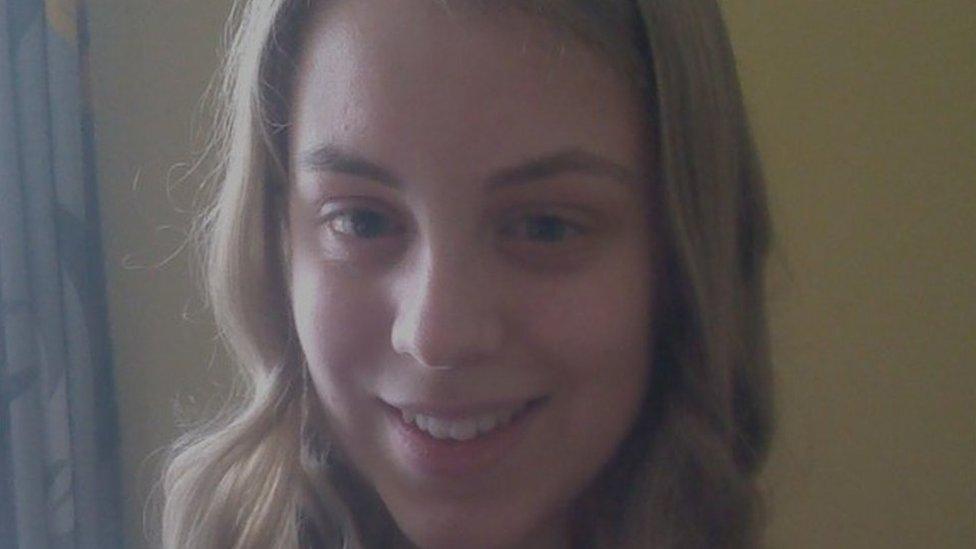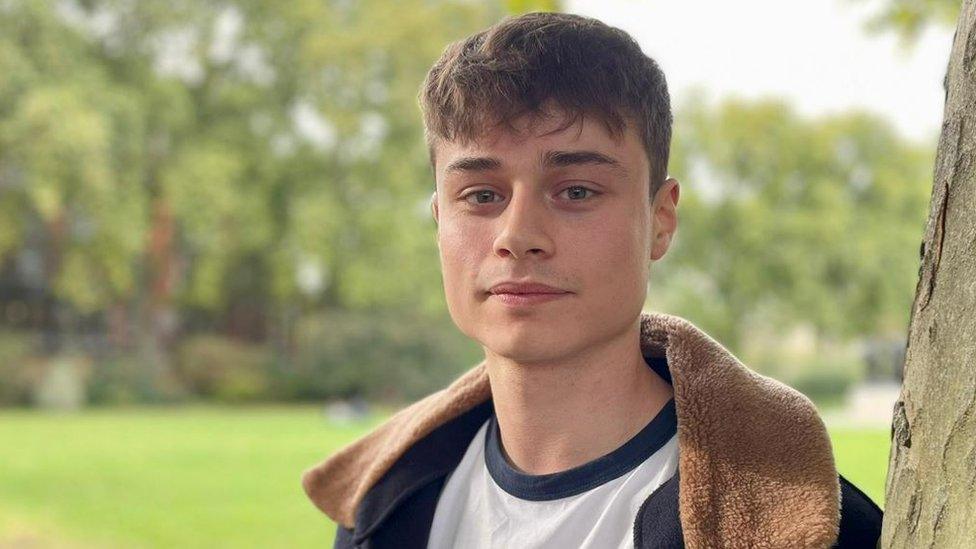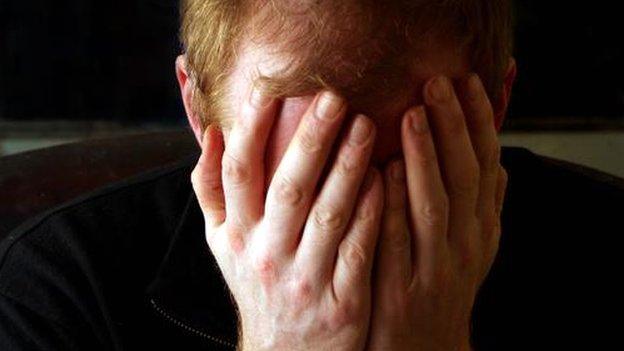Student suicides: Parents seek law change to prevent deaths
- Published

Natasha Abrahart, from West Bridgford in Nottinghamshire, killed herself at the age of 20
A group of parents whose children killed themselves at university are campaigning for a change in law to make the institutions more accountable.
They want universities to have a legal duty of care towards their students, like schools already do.
The parents include Natasha Abrahart's mother and father, who sued the University of Bristol over her suicide.
However, Universities UK does not believe additional legal duties need to be placed on the sector.
'Moral duty' only
The petition is being supported by 25 bereaved families, who have come together and set up The LEARN Network, external.
"Our petition is quite straightforward, it's asking the government to enact a legal duty of care for the higher education sector," said Bob Abrahart, Natasha's father.
"Everybody assumes that universities have a duty of care. The universities argue they care, but they don't have a legal duty of care, it's some sort of moral duty."

Natasha Abrahart's parents want legislation to protect other students
Natasha had social anxiety disorder, which made it difficult for her to speak in front of people, and she killed herself on the day she was due to give a presentation in a large lecture theatre.
Her parents took legal action against the University of Bristol under two types of law - the Equality Act 2010 and also the law of negligence.
They were able to win their claim under the Equality Act because Natasha's social anxiety disorder was classed as a disability, and the judge ruled the university had not made reasonable adjustments in the way she was assessed as part of her course.
However, they lost the negligence part of their case, because the judge was not satisfied that the university owed Natasha a duty of care. His judgement, external noted that "there is no statute or precedent which establishes the existence of such a duty of care owed by a university to a student".
This is why the Abraharts want new legislation, in order to protect students who are not already protected under the Equality Act.

Natasha had social anxiety disorder, which was classed as a disability under the Equality Act
Their solicitor, Gus Silverman, said the judgement in Natasha's case highlighted "the lack of legal protections for students who don't benefit from the Equality Act".
"As the law presently stands it is difficult to hold a university legally accountable where it has caused a student harm by behaving unreasonably, unless the student was disabled and the claim meets the Equality Act's procedural requirements," said Mr Silverman.
"It seems very strange that if a school owes a duty to act with reasonable care and skill in relation to its pupils that a university shouldn't owe a similar duty to its students, particularly when universities, including the University of Bristol, regularly claim publicly that they do owe that kind of duty."

If you have been affected by any of these issues, you can visit the BBC's Action Line or contact the Samaritans, external.

Universities UK, which describes itself as the "collective voice" of 140 universities, is cautious about changing the law.
"UUK does not believe that a statutory duty of care is necessary, as universities are already subject to health and safety regulations and duties under the Equality Act," a spokesperson said.
"Universities go beyond their legal requirements to prioritise the mental health and wellbeing of their staff and students, to provide support services for those in difficulty, and to work closely with NHS services.
"If additional legal duties are to be placed on universities, above what is required in other adult work or education settings, it needs to be accompanied by better mental health care across the health service and additional funding."
On Thursday, Universities UK announced new "information sharing" guidance which aims to prevent student suicide.
Under the guidance, external, universities are being asked to contact key family members, carers or friends if they have serious concerns about a student's mental health.
However, the Abraharts are concerned that institutions may not take up the recommendations, because there is no legal requirement to follow them.

Phoebe Grime, shown here with her mother, killed herself aged 20 in June 2021
Official estimates suggest, external 64 students killed themselves in England and Wales in the 2019-20 academic year.
Hilary Grime, whose daughter Phoebe killed herself while studying at Newcastle University, external, is among the parents campaigning for new legislation.
"All this time that's passing is more students taking their own lives," she said.
"This is every parent's worst nightmare. It is the most horrendous thing that can ever happen, so I'm really hoping that we're going to get a lot of support for it."

The University of Bristol said it "cares deeply" about the welfare of its students
On Thursday the University of Bristol announced it was seeking permission from the High Court to appeal the judgement in Natasha's case.
It explained this was because it was "seeking absolute clarity for the higher education sector around the application of the Equality Act".
The university did not want to comment on the duty of care legislation now being proposed by Natasha's parents.
However, a spokesperson said: "Every single member of staff cares deeply about the welfare of our students and, as with all universities, we provide a wide range of pastoral support services which they can easily access.
"Part of this support involves assisting students to access specialist care under the NHS or other providers should they need it, as happened in Natasha's case."

Ruth Edwards MP said Natasha's death was a "tragedy that should never have happened"
The Abraharts have also spoken to their local MP, Ruth Edwards, who intends to raise their campaign with ministers.
"Natasha Abrahart's death was a tragedy that should never have happened," said the Conservative MP for Rushcliffe.
"I hugely admire her parents, Bob and Maggie, for the work they are doing to seek justice for Natasha and to ensure that other young people and their families are given protection from the pain and grief they have faced.
"Their petition raises important issues about the duty of care that universities and colleges have towards their students. I look forward to working with them to raise these issues in Parliament and with government ministers."

Follow BBC East Midlands on Facebook, external, on Twitter, external, or on Instagram, external. Send your story ideas to eastmidsnews@bbc.co.uk, external.
- Published6 October 2022

- Published6 October 2022

- Published20 May 2022

- Published25 May 2016
